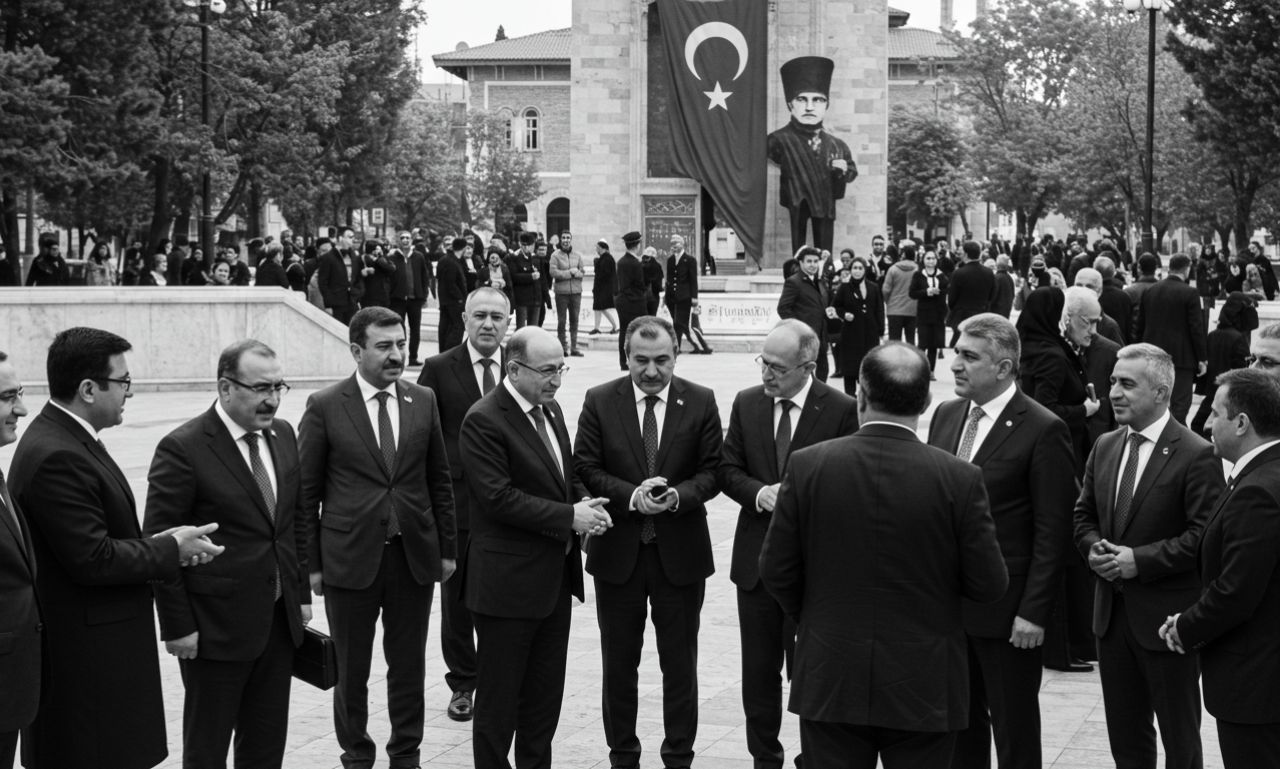Cumhuriyet, or the Republic, stands as a monumental pillar in the heart of Turkey. It embodies a rich history and represents the aspirations of a nation striving for democracy and progress. As we delve into this captivating concept known as cumhuritey, we uncover not just its origins but also its vital role in shaping modern Turkish society. From the passionate vision of Mustafa Kemal Atatürk to contemporary democratic practices, cumhuritey has woven itself into the fabric of everyday life in Turkey. Join us on this enlightening journey through time as we celebrate what makes cumhuritey not only significant but also essential to understanding Turkey today.
What is Cumhuritey?
Cumhuriyet, translating to “The Republic” in Turkish, signifies a pivotal moment in the nation’s history. It embodies the shift from an Ottoman Empire characterized by monarchy to a modern democratic state.
This transition is marked by values that uphold citizen sovereignty and equal representation. Cumhuriyet invites all citizens to participate actively in governance, ensuring their voices are heard.
At its core, Cumhuriyet represents unity and collective progress. It encourages diversity while promoting national identity. The emphasis on secularism distinguishes it from many other republics worldwide.
In essence, cumhuritey encapsulates hope for a fair society where everyone has rights and responsibilities. This concept continues to inspire generations eager for freedom and democracy within Turkey’s evolving landscape.
History of the Turkish Republic
The history of the Turkish Republic began in the aftermath of World War I. The Ottoman Empire, once a dominant force, crumbled under pressure from multiple fronts. This created a power vacuum that led to nationalist movements across Anatolia.
In 1920, Mustafa Kemal Atatürk emerged as a key figure during the Turkish War of Independence. His leadership galvanized disparate groups into a unified front against foreign occupation and internal strife. By 1923, Turkey achieved sovereignty with the signing of the Treaty of Lausanne.
Atatürk’s vision for modern Turkey was bold and transformative. He sought to break away from centuries-old traditions while fostering national identity through secularism and nationalism. These foundational changes laid down principles that would guide future generations.
Establishing institutions like education reforms and legal systems were pivotal steps toward nation-building. The republic aimed to create an environment where democracy could flourish amidst diverse cultures and beliefs within its borders.
Mustafa Kemal Atatürk: Father of Cumhuriyet
Mustafa Kemal Atatürk stands as a towering figure in Turkish history. He is often referred to as the “Father of Cumhuriyet.” His vision was clear: to transform a fragmented empire into a modern, secular republic.
Born in 1881, Atatürk displayed exceptional leadership early on. His military prowess during World War I laid the groundwork for his later political achievements.
In 1923, he proclaimed the Republic of Turkey, breaking away from centuries of Ottoman rule. This shift marked not just a change in governance but also an evolution in societal values.
Atatürk championed reforms that promoted education and women’s rights, establishing principles that would shape Turkish identity. His dedication to nationalism and modernization resonates deeply within the fabric of contemporary Turkey.
Key Principles and Values of Cumhuriyet
Cumhuriyet embodies core principles that shape the essence of Turkish society. At its foundation lies the value of secularism, ensuring a clear separation between religion and state affairs. This principle fosters an environment where diverse beliefs can coexist.
Another pivotal tenet is nationalism, which promotes unity among citizens while celebrating cultural diversity. It encourages pride in national identity without suppressing individual differences.
Equality stands as a cornerstone of Cumhuriyet’s ideology. Every citizen has equal rights under the law, irrespective of gender or background. This commitment to fairness helps create a more inclusive society.
Democracy also plays a crucial role in this framework. The establishment allows for free expression and participation in governance, empowering citizens to have their voices heard.
Education is highly valued within Cumhuriyet’s ideals. A well-informed populace is essential for sustaining democracy and fostering progress in modern Turkey.
Celebrating Cumhuritey: National Holidays and Traditions
Cumhuriyet Bayramı, celebrated on October 29th, marks the proclamation of the Republic in 1923. It ignites a sense of unity among Turks as they commemorate their nation’s transformation.
On this day, vibrant parades fill city streets. Citizens proudly wave flags and sing national songs. The atmosphere buzzes with excitement and patriotism.
Festivities often include cultural performances showcasing Turkey’s rich heritage. Dancers clad in traditional costumes captivate audiences while musicians play folk tunes that resonate through the air.
Educational institutions also participate by organizing events to instill pride in young minds about their democratic roots. Schools host programs highlighting Atatürk’s vision for a modern nation.
Fireworks light up the night sky, symbolizing hope and progress. Communities come together to share meals and stories, reinforcing bonds shaped by history and shared values. Each celebration serves as a reminder of what Cumhuriet represents: freedom, democracy, and resilience.
Impact of Cumhuriyet on Modern Turkey
Cumhuriyet has profoundly shaped modern Turkey in various aspects. It established a secular state, separating religion from government affairs. This separation fostered an environment where diverse beliefs could coexist.
The emphasis on education and science under Cumhuriyet transformed societal values. Literacy rates soared as educational reforms made knowledge accessible to all citizens. A well-informed populace became instrumental in driving progress.
Economically, Cumhuriyet initiated industrialization efforts that propelled Turkey into the global arena. Investments in infrastructure laid the groundwork for economic growth, attracting foreign investments.
Culturally, it encouraged artistic expression and innovation. Writers, artists, and thinkers flourished during this period of newfound freedom.
Socially, women gained rights previously unheard of in Turkish society. From voting to participating in public life, their roles expanded significantly under Cumhuriyet’s influence.
Each facet reflects not just change but a commitment to building an inclusive nation rooted in democratic principles.
Challenges and Criticisms of Cumhuriyet
Cumhuriyet has faced numerous challenges since its inception. The transition to a democratic framework was not smooth. Political instability and military interventions marred the early years.
Critics often point to authoritarian tendencies within the government. Some argue that certain leaders have undermined civil liberties in the name of national security. This tension between state control and individual freedoms raises important questions about democracy’s boundaries.
Economic hardships also play a role in shaping public perception of Cumhuriyet. Inflation, unemployment, and regional disparities create discontent among citizens. Many wonder if their voices are truly heard or represented.
Moreover, societal divisions can complicate unity under the banner of Cumhuriyet. Ethnic differences sometimes lead to feelings of exclusion rather than inclusion within this democratic framework.
These issues highlight ongoing debates about what it means to uphold the values established by Mustafa Kemal Atatürk while adapting them for contemporary society.
The Future of Turkish Democracy
The future of Turkish democracy hinges on vibrant civic engagement. Young voices are emerging, eager to influence the political landscape. Their passion for change brings hope and renewal.
Technological advancements play a significant role in shaping public discourse. Social media platforms allow citizens to express opinions freely and organize movements effectively. This digital revolution could redefine democratic participation in Turkey.
However, challenges remain. Political polarization threatens unity among various groups. Addressing these divisions is crucial for fostering a healthier democratic environment.
Moreover, the rule of law must be reinforced to ensure that institutions operate independently. Strengthening judicial systems can restore public trust in democracy’s foundations.
As Turkey navigates this complex terrain, international cooperation may provide valuable insights for sustaining democratic values while respecting cultural uniqueness. The dialogue between tradition and modernity will continue to shape what lies ahead for Cumhuriyet’s legacy.
Conclusion
Cumhuriyet stands as a testament to the resilience and ambition of the Turkish people. It embodies principles that foster equality, justice, and democracy. Celebrating Cumhuriyet is not merely about commemorating a historical event; it is an opportunity to reflect on the journey towards modernization and progress.
The impact of Cumhuriyet resonates through every facet of Turkish society today. While challenges remain, the spirit of this republic encourages continuous dialogue about rights, freedoms, and governance. As Turkey navigates its path forward, embracing both its rich history and diverse culture will be vital in shaping a future grounded in democratic values.
Understanding Cumhuriyet means recognizing its significance beyond borders. It symbolizes hope for many who aspire to democracy worldwide. The legacy left by Mustafa Kemal Atatürk serves as motivation for ongoing efforts toward political stability and social justice in modern Turkey.
As celebrations unfold each year on October 29th, Cumhuritey they remind us all of the power held within a united populace striving for freedom—an enduring commitment to uphold the ideals that define Cumhuriyet itself.

